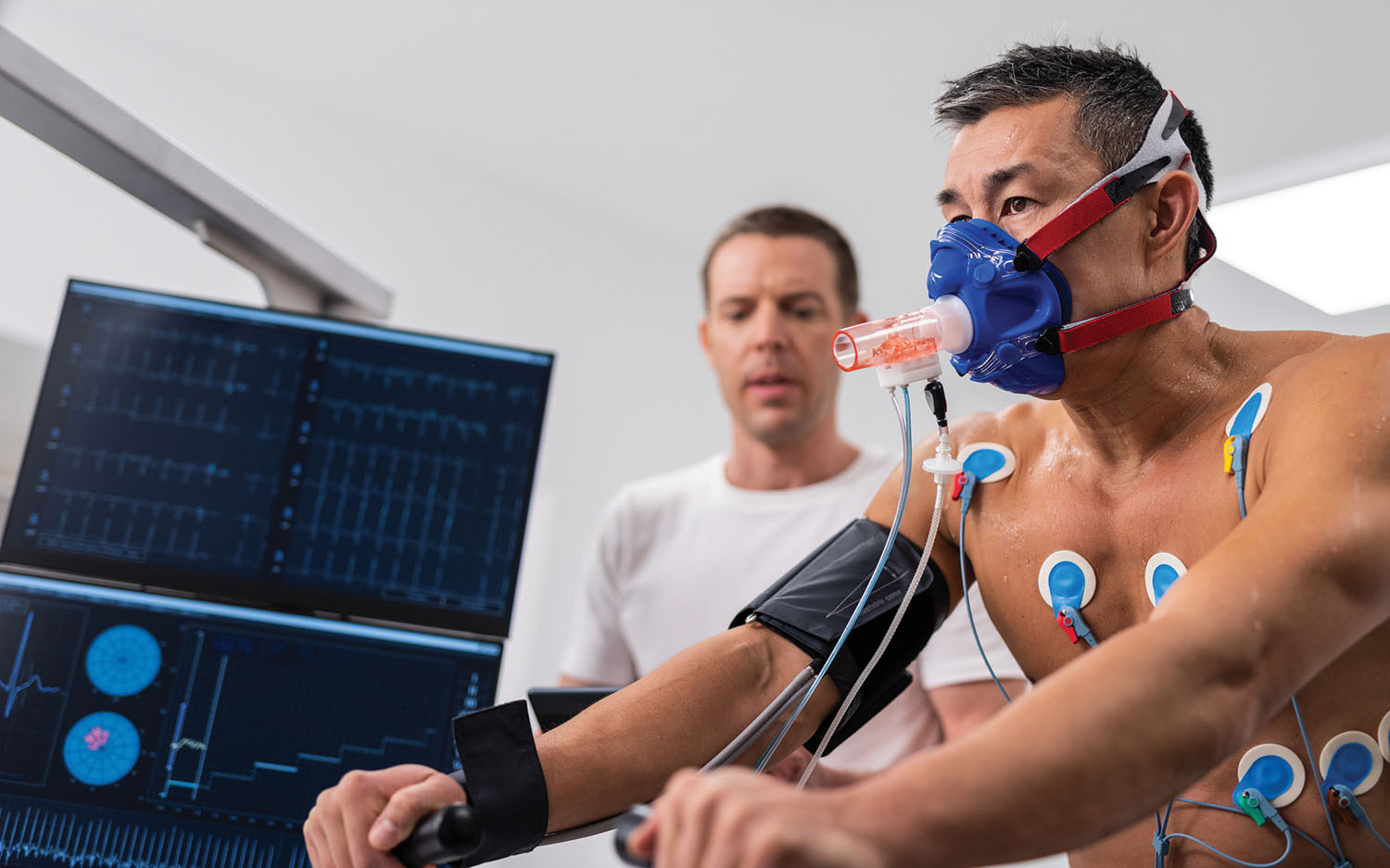
Counting steps is good — is combining steps and heart rate better?

Appendix pain: Could it be appendicitis?

Can saw palmetto treat an enlarged prostate?

How does Ozempic work? Understanding GLP-1s for diabetes, weight loss, and beyond

Zinc: What it does for the body, and the best food sources

Respiratory health harms often follow flooding: Taking these steps can help

Tips to leverage neuroplasticity to maintain cognitive fitness as you age

Can white noise really help you sleep better?

Celiac disease: Exploring four myths

What is prostatitis and how is it treated?
Heart Health Archive
Articles
Reset your heart health
Cardiac rehabilitation and cardiovascular wellness programs can help people change unhealthy habits, reduce heart attack risk, and boost longevity. They are typically offered in group sessions, and in an outpatient hospital or community setting. Cardiac rehab is intended for people who've had a heart attack, heart bypass surgery, a heart or heart and lung transplant, stenting to open arteries, or valve surgery, as well as those with chronic chest pain (angina) or certain kinds of heart failure. Cardiovascular wellness programs are meant for people who don't qualify for cardiac rehab but want to improve their heart and blood vessel health.
Long-term acetaminophen use may boost blood pressure
High doses of the popular pain reliever acetaminophen (Tylenol) may raise blood pressure when taken for two weeks.
Hospitalization after a ministroke? Not necessarily
Someone who has a transient ischemic attack (TIA, or ministroke) needs prompt testing to look for the underlying cause. A 2022 study shows that people can safely get that evaluation at a specialized outpatient clinic rather than having to be admitted to the hospital. The testing usually includes a heart ultrasound (echocardiogram), cardiac monitoring, and imaging tests. The results guide targeted stroke-prevention treatments, which can reduce the risk of a future stroke by as much as 80%.
Understanding secondary hypertension
Up to 10% of people with high blood pressure have secondary hypertension, which is caused by another condition or disease. The most common of these involve problems with the adrenal glands (hyperaldosteronism), or the arteries supplying the kidneys (renal artery stenosis). People most likely to have secondary hypertension include those with resistant hypertension who use three or more medications to manage their blood pressure, and people who develop hypertension before age 30.
Even a little extra daily exercise may postpone death
If most middle-aged and older American adults added just 10 to 20 minutes of moderate exercise to their normal daily activities, it could prevent an estimated 110,000 to 209,000 premature deaths each year.
What's the deal with dairy and heart health?
Full-fat dairy products such as yogurt and cheese can be part of a heart-healthy diet. Compared with nonfat or low-fat products, full-fat dairy products tend to be tastier and more filling. But because they contain more calories and saturated fat, it's best to limit full-fat dairy products to one serving a day and combine them with healthy foods, such as fruit, whole grains, and salads. Cheese is often eaten with less-healthy foods such as refined grains and meat, including pizza, burgers, mac and cheese, and Mexican food.
Yoga and high blood pressure
A regular yoga practice may help lower blood pressure. But people with this condition should be cautious about certain poses that place the heart higher than the head (known as inversions).
What causes a stiff, narrowed aortic valve?
The most common cause of a stiff, narrowed aortic valve (aortic stenosis) is a buildup of scar tissue and calcium on the valve. Factors that contribute to narrowing of this valve include age, an inborn valve defect, and various diseases such as kidney disease. Aortic stenosis can cause shortness of breath, fatigue, and lightheadedness, especially during physical activity.
Beware of possible rise in blood clot risk when binge-watching television
Watching television for four or more hours a day is linked to a higher risk of developing dangerous blood clots.
Unmasking the varied causes of breathlessness and fatigue
Cardiopulmonary exercise testing (CPET) can help diagnose unusual causes of breathlessness, such as pulmonary hypertension or heart failure with preserved ejection fraction. CPET collects information about a person's heart and lung function to assess how the body responds to exercise. It may also help doctors better understand the lingering fatigue and breathlessness that sometimes occur after a COVID-19 infection.

Counting steps is good — is combining steps and heart rate better?

Appendix pain: Could it be appendicitis?

Can saw palmetto treat an enlarged prostate?

How does Ozempic work? Understanding GLP-1s for diabetes, weight loss, and beyond

Zinc: What it does for the body, and the best food sources

Respiratory health harms often follow flooding: Taking these steps can help

Tips to leverage neuroplasticity to maintain cognitive fitness as you age

Can white noise really help you sleep better?

Celiac disease: Exploring four myths

What is prostatitis and how is it treated?
Free Healthbeat Signup
Get the latest in health news delivered to your inbox!
Sign Up











